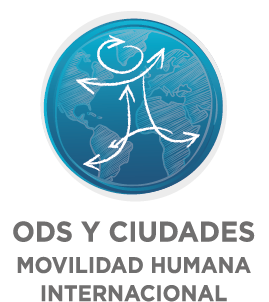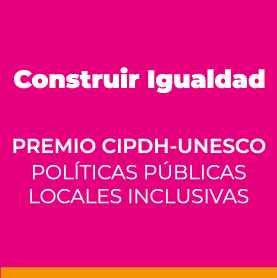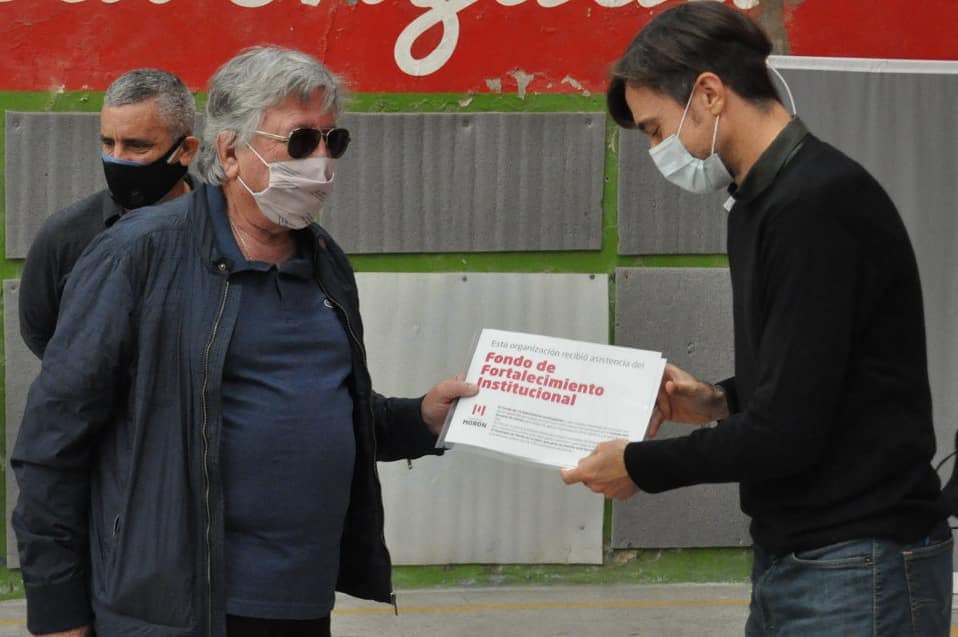
- Region
- Latin America and the Caribbean
- Range of Demographic Size
- 100,000 to 499,999 inhabitants (large intermediate)
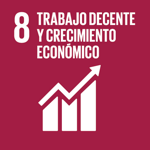
8.2 Achieve higher levels of economic productivity through diversification, technological upgrading and innovation, including, among other things, through a focus on high-value added and labour-intensive sectors.
8.3 Promote development-oriented policies that support productive activities, decent job creation, entrepreneurship, creativity and innovation, and encourage the formalization and growth of micro-, small- and medium-sized enterprises, including through access to financial services.
8.10 Strengthen the capacity of domestic financial institutions to encourage and expand access to banking, insurance and financial services for all.
8.a Increase Aid for Trade support for developing countries, in particular, least developed countries, including in through the Enhanced Integrated Framework for Trade-Related Technical Assistance to Least Developed Countries.
8.b By 2020, develop and operationalize a global strategy for the employment of youths and implement the Global Jobs Pact of the International Labour Organization.
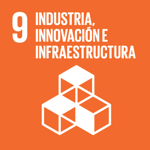
9.1 Develop quality, reliable, sustainable and resilient infrastructure, including regional and transborder infrastructure, to support economic development and human well-being, with a focus on affordable and equitable access for all.
9.3 Increase the access of small-scale industrial and other enterprises, in particular in developing countries, to financial services, including affordable credit, and their integration into value chains and markets.
9.a Facilitate sustainable and resilient infrastructure development in developing countries through enhanced financial, technological and technical support to African countries, least developed countries, landlocked developing countries and small island developing States.
9.b Support domestic technology development, research and innovation in developing countries, including by ensuring a conducive policy environment for, inter alia, industrial diversification and value addition to commodities.
9.c Significantly increase access to information and communications technology and strive to provide universal and affordable access to the Internet in least developed countries by 2020.
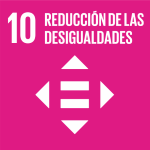
10.4 Adopt policies, especially fiscal, wage and social protection policies, and progressively achieve greater equality.
10.5 Improve the regulation and monitoring of global financial markets and institutions and strengthen the implementation of such regulations.
10.a Implement the principle of special and differential treatment for developing countries, in particular least developed countries, in accordance with World Trade Organization agreements.
10.b Encourage official development assistance and financial flows, including foreign direct investment, to States where the need is greatest, in particular least developed countries, African countries, small island developing States and landlocked developing countries, in accordance with their national plans and programmes.
10.c By 2030, reduce to less than 3 per cent the transaction costs of migrant remittances and eliminate remittance corridors with costs higher than 5 per cent.
C - Ageing, social protection and socioeconomic challenges
Universal Declaration of Human Rights (UDHR).
International Covenant on Civil and Political Rights (ICCPR).
International Covenant on Economic, Social and Cultural Rights (ICESCR).
Additional Protocol to the American Convention on Human Rights in economic, social and cultural rights (San Salvador Protocol).
Summary
The Institutional Strengthening Fund is a local public policy aimed at helping different civil-society institutions in Morón carry out infrastructure works and pay their taxes and utilities, so as to strengthen and encourage them in their charitable activities. The assistance focuses on community clubs, development organizations, civil not-for-profit associations, and other grassroots entities. This policy also provides for fostering and protecting small and medium-sized companies, as well as supporting local shops within the municipality.
Funds derive from a surtax charged on the Security and Hygiene Inspection Tax payable by financial institutions (credit entities, banks, betting establishments, gambling houses and casinos, and other related activities).
The Institutional Strengthening Fund, created by Morón’s Municipal Legislature, not only has a financial purpose, but it also provides accounting, technical and legal assistance to the beneficiary entities.
Implementation Date:
Start: 06 / 23 / 2016
End: End: Currently in force
Society in general
Financial/legal/technical assistence
Systems of production, survey, systematization and monitoring of information (data)
Institutional strengthening
Creation of entity/plan/programme
Article in INFO135: “The Municipality of Morón allocated new Strengthening Fund’s grants to over 70 institutions”.
Article in El Cactus - Noticias del Oeste: “Morón. The Municipality allocated new Strengthening Fund’s grants to over 70 institutions”.
- Email: atencion.vecino@moron.gob.ar
- Web: http://www.moron.gob.ar
- Telephone: +54 11 4489 7777
- Social Network:
Instrumentos

8.2 Achieve higher levels of economic productivity through diversification, technological upgrading and innovation, including, among other things, through a focus on high-value added and labour-intensive sectors.
8.3 Promote development-oriented policies that support productive activities, decent job creation, entrepreneurship, creativity and innovation, and encourage the formalization and growth of micro-, small- and medium-sized enterprises, including through access to financial services.
8.10 Strengthen the capacity of domestic financial institutions to encourage and expand access to banking, insurance and financial services for all.
8.a Increase Aid for Trade support for developing countries, in particular, least developed countries, including in through the Enhanced Integrated Framework for Trade-Related Technical Assistance to Least Developed Countries.
8.b By 2020, develop and operationalize a global strategy for the employment of youths and implement the Global Jobs Pact of the International Labour Organization.

9.1 Develop quality, reliable, sustainable and resilient infrastructure, including regional and transborder infrastructure, to support economic development and human well-being, with a focus on affordable and equitable access for all.
9.3 Increase the access of small-scale industrial and other enterprises, in particular in developing countries, to financial services, including affordable credit, and their integration into value chains and markets.
9.a Facilitate sustainable and resilient infrastructure development in developing countries through enhanced financial, technological and technical support to African countries, least developed countries, landlocked developing countries and small island developing States.
9.b Support domestic technology development, research and innovation in developing countries, including by ensuring a conducive policy environment for, inter alia, industrial diversification and value addition to commodities.
9.c Significantly increase access to information and communications technology and strive to provide universal and affordable access to the Internet in least developed countries by 2020.

10.4 Adopt policies, especially fiscal, wage and social protection policies, and progressively achieve greater equality.
10.5 Improve the regulation and monitoring of global financial markets and institutions and strengthen the implementation of such regulations.
10.a Implement the principle of special and differential treatment for developing countries, in particular least developed countries, in accordance with World Trade Organization agreements.
10.b Encourage official development assistance and financial flows, including foreign direct investment, to States where the need is greatest, in particular least developed countries, African countries, small island developing States and landlocked developing countries, in accordance with their national plans and programmes.
10.c By 2030, reduce to less than 3 per cent the transaction costs of migrant remittances and eliminate remittance corridors with costs higher than 5 per cent.
C - Ageing, social protection and socioeconomic challenges
Universal Declaration of Human Rights (UDHR).
International Covenant on Civil and Political Rights (ICCPR).
International Covenant on Economic, Social and Cultural Rights (ICESCR).
Additional Protocol to the American Convention on Human Rights in economic, social and cultural rights (San Salvador Protocol).
Location
- Region
- Latin America and the Caribbean
- Range of Demographic Size
- 100,000 to 499,999 inhabitants (large intermediate)
Contact details
- Email: atencion.vecino@moron.gob.ar
- Web: http://www.moron.gob.ar
- Telephone: +54 11 4489 7777
- Social network:


